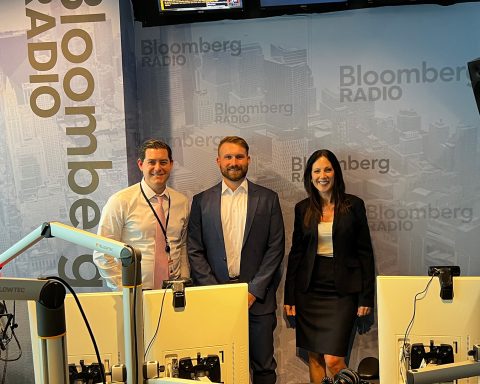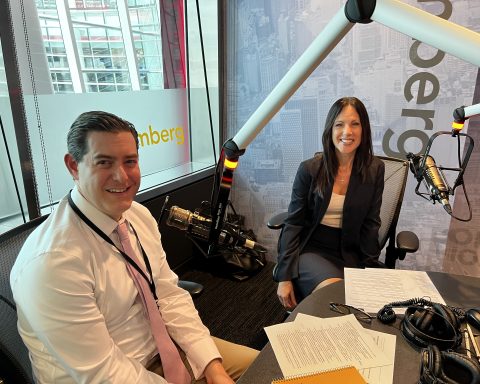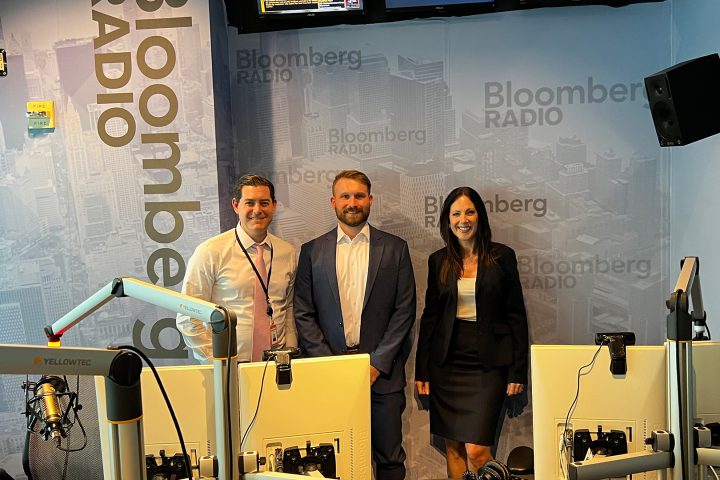The first chapter of my book is titled “It’s Not You, The Rules Have Changed,” and they most assuredly have. And while it isn’t you, if you want to minimize your frustration with a broken hiring system, you will need to understand what is going on out there and make changes to how you manage your career and approach any job search.
The first pattern that everyone needs to change is this approach to a job search:
- You put your energy into actively seeking a new role, which includes sending out emails to many people you haven’t spoken to or otherwise interacted with on a regular basis, if at all, for a long time (perhaps not since your last job search).
- You land your new role, put your head down, lean in, and dedicate all your time to over-performing on the job.
- You are “too busy” with your new role and have little to no interaction with the majority of those who you reached out to during your search.
- You find yourself in an active job search again. And you revert to the activity described here in the first bullet and you begin the cycle again.
- I call this the “Cycle of Futility” and my life’s mission is to stop this from happening to you.
WHY DOES THIS PATTERN NEED TO CHANGE?
- If you haven’t watched my TEDx talk yet (https://youtu.be/y180PWHdYLA) I encourage you to do so because it will provide concrete information on the rapid increase in the rate of disruption that companies are facing. There most certainly was a time when companies were able to keep the spoken or unspoken promise of, “I will hire you and if you do a great job, you will have a job with us for as long as you want it,” so keeping your head down, giving it all you had to give, and being “loyal” made a lot of sense.” But today, the last thing executives who have outperformed and out-delivered hear just before they find themselves in a job search is, “it’s just business!”
During the earlier part of your career, if a manager to whom you reported moved up or out, they often reached back and tapped you to come along with them. But many of those raving fans have now retired, and you are the senior leader who others are hoping will reach back for them. That tight cocoon of a network is no longer reliable, and you must expand. In short, your boss is no longer your career strategy. You also must expand because roles and entire segments of a business have gone away, and that old reliable network simply cannot help you now. - Ahhh, and then there is the pervasiveness of Applicant Tracking Systems (ATS) that try to distill your 15, 20, 25 years of experience down to 5 to 7 key words! They are a black hole, they are one of the most “rigged” parts of an executive job search, and unfortunately, they are not going away.
- Additionally, there is a strong preference to promote from within. That was great when the old rules were in play and you were benefitting from that as you moved up the ladder over many years of tenure in a company. But today, if you are on the outside trying to land a leadership role within a different company, you are most often competing with one or more internal candidates. There are many reasons for that, including the fact that they know the internal candidates fit the culture, they know they know the business, and promoting from within helps boost their employee engagement scores, so those candidates will be given a strong preference. That is why so many “applications” fall into a big black hole. The postings are a “check the box” exercise so that they can say, “we posted the role and tried to find someone better than the internal candidate, but no one else who applied was as good as our internal option.”
- The disruption has made companies seek to hire “specialists” not “generalists.” With the competition breathing down their neck and new competitors who are barely getting started growing exponentially (see Unicorns and Decacorns described in my TEDx video) they want someone who can hit the ground running, and to them, that means a specialist.
So, while you see yourself as an all-around athlete, they now see that as meaning “jack of all trades, master of none.” You see, they understand that your tenure will be 3 to 5 years so they don’t see a high probability that they will be able to deploy you in future roles because their business will have changed and/or been disrupted and they will need a new specialist.
THIS IS THE BIGGEST RULE CHANGE OF ALL
HIRING IS BASED ON AVOIDING RISK
RATHER THAN SEIZING AN OPPORTUNITY
Today, virtually every hiring decision is made based on the goal of avoiding risk. And the way that “risk” is evaluated is increasingly narrow and illogical—but none-the-less, it is criteria number 1 for most companies. For example, I had a client who had started in an IT role in a different industry and had moved into an IT role in the medical device industry and had been there and had been successful for 7 years. He had started at the Director level and had been promoted twice, reaching the role of CIO before the company was sold and his role was eliminated.
His career trajectory was a very good indicator that he was doing something right in his last role. But he came in second for a CIO role in a medical device company, and he was told that it came down to him and to someone who had spent 15 years in the medical device industry so that company saw that candidate as less risky! I think that a rational look at this would conclude that after 7 years, from an industry experience point of view, there was probably not much that is relevant to today’s IT world (if anything) that the candidate with 15 years of experience had seen that the candidate with 7 years had not seen. But the decision had not been a rational one, it had been an emotional one and one designed solely to minimize risk.
And that brings me to some of the other things that companies do to “avoid risk”
- Related to the above example is a general avoidance of hiring anyone outside of their industry. Companies used to think that someone from a different industry would bring new ideas, new best practices, etc. Now, they just think it is too risky and they wouldn’t be able to hit the ground running.
- Hiring someone who specifically wants to step back a level or is very willing to do so. The perceived risk is that they will be bored and won’t stay if a higher-level role and more money comes along, no matter how insistent the candidate may be about the fact that they are actively seeking to make that step back. And of course, as has always been the case in a situation like this, the hiring manager often considers it risky to hire someone who is more qualified than they are for fear that they will go after their role. That has always been a consideration but is perhaps only heightened by the constant instability of tenure inside most companies today.
SEARCHES TAKE LONGER AND INVOLVE MORE PEOPLE
This phenomenon is partially related to avoiding risk. Hiring managers want more people above them and within their team to also interview the candidate. Of course, having more people involved is sometimes done to gain buy-in for the candidate, but some of that is driven by not wanting to be the only one to point a finger at if the hire doesn’t work out. And hiring managers also overthink the risk of the hire and put off a decision that they would have made more quickly in the past.
- We are also dealing with a global workforce of people who are already stretched thin while doing the job of 2 people in so many instances. This too causes delays. As you have all probably witnessed, there are no “extras” on teams. Companies are running as lean as possible which simply means that it has gotten even harder to get on someone’s schedule. You can also add the additional burden of coordinating multiple rounds of interviews with a dispersed global workforce and time zone challenges.
WHAT DOES ALL THIS MEANS TO YOU?
YOU NEED TO MASTER YOUR MINDSET
The length of the search, the complexity of the search and the frustrating process all tied around risk avoidance is exactly why mastering your mindset is so important. You must prepare yourself for a marathon, not a sprint. And, for a marathon where so much is out of your control. You are going to be forced to go outside of your comfort zone, and that means mastering your mindset is essential.
I have seen first-hand that not taking control of your mindset is the number one thing that can impact your ability to execute with consistency in your search effort. And lack of consistency directly impacts your momentum—and not in a good way!
Without having awareness of your mindset, when you encounter the frustration of dealing with the new rules you let a moment or an event cause you to adopt a negative view that can ruin a networking event, a call, an interview, and can cause you to lose momentum.
It can—or— instead, you can get into the habit of recognizing whenever your mindset is impacted, and you can train yourself to immediately also get into the habit of taking an action that brings your mental state back up.
The most effective strategy for resetting your mindset is to have a list of go-to actions you will take as soon as you notice that your mindset has been impacted—and ones to always avoid as well.
First, let’s look at what to avoid.
Avoid seeking someone out who will just join in agreeing with you about how unfair the situation is. Unfortunately, that may feel good for the moment, and for just a very brief moment, but it won’t help you get your mindset where it needs to be. Instead, I want you to create a list of a range of go-to activities that will enable you to get in a better, more powerful frame of mind.
Simply put—creating a BULLETPROOF MINDSET is crucial if you want to persevere against a system with all new rules and the resulting roller coaster ride.
ONLY A STRATEGIC APPROACH WILL SHORTEN YOUR JOURNEY
You won’t beat this new hiring system with a shotgun, reactive approach—only with a very strategic approach. Perhaps counterintuitively, going “broader” in your search only lengthens the process. You dissipate your effectiveness when you target, for example, “any industry,” “any title,” or “any size.”
Remember, risk avoidance is rule one for the hiring company. For hiring companies/managers, candidates from different industries, different size companies, or someone who will step back a level or two represent too much of a risk. Yes, you may be able to get an interview (but the percentage of success even with that first step is low), but as it comes down to making the final hiring decision, they will most often seek the “safe” hire.
So today, the shortest distance between where you are and your next role is to focus on where you have the strongest specific track record, in a similar size company, the same industry, and the same or very equivalent level as your most recent history. That is where you can be a top candidate. If you have a strong desire to make any of the changes described here (industry, size, etc.), then you must make a commitment to curate and cultivate a network in that new direction if you want to significantly improve your odds of being successful with that change in the near term.
Here is what that looks like in light of the new rules:
You target companies and roles that most closely align with where you have most recently been (Plan A and the shortest journey to a new role) AND you begin to spend some time curating and cultivating a network in the industry/size of company, etc. where you want to go (Plan B). You accept a role that fits Plan A AND you continue to actively and consistently curate and cultivate the network that can give you the best chance to land a role that fits Plan B.
You have probably heard the adage, “it’s easier to find a job when you have a job, and that is absolutely true. So, if you are between roles and then land your new role, you have immediately removed one risk for the hiring company—they no longer have the little voice saying, “I wonder if we missed something. Why are they out of work?” Taking the risk of “maybe we missed something” off of the table and cultivating a network that works for Plan B will greatly improve your odds.
THE RULES HAVE CHANGED.
NOW YOU KNOW HOW YOU HAVE TO CHANGE.
The hiring landscape has undeniably shifted. Understanding and adapting to these new rules is vital. You must cultivate a strategic approach, embrace a bulletproof mindset, and continuously nurture your network. By focusing on areas where you have a proven track record and actively curating connections in new directions, you can navigate the complexities of today’s job market. The shortest path to success lies in your ability to adapt, stay focused, and remain resilient in the face of change.
























